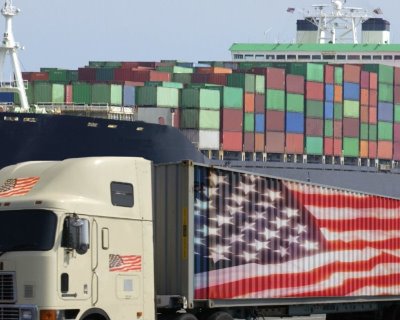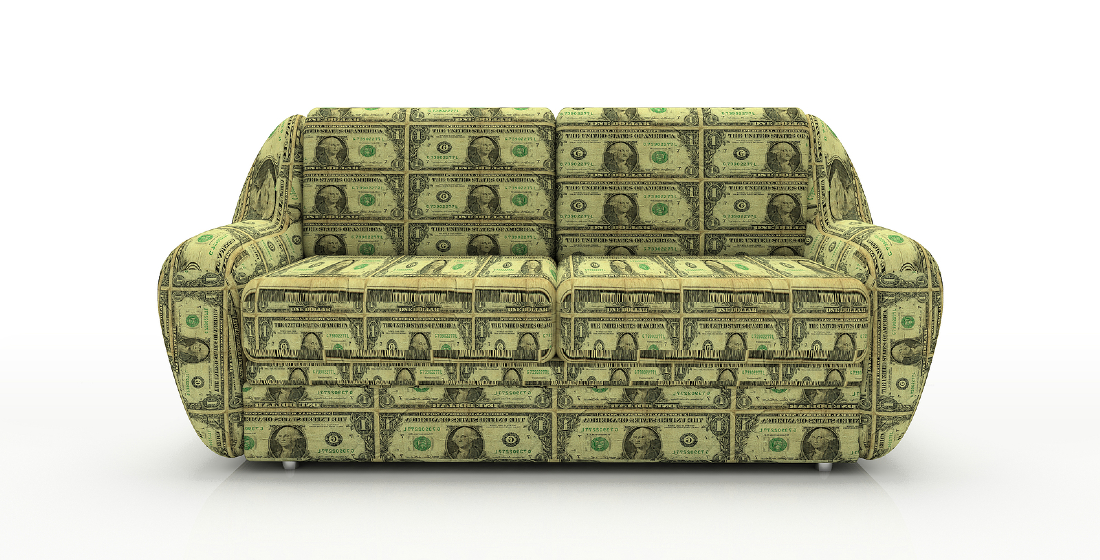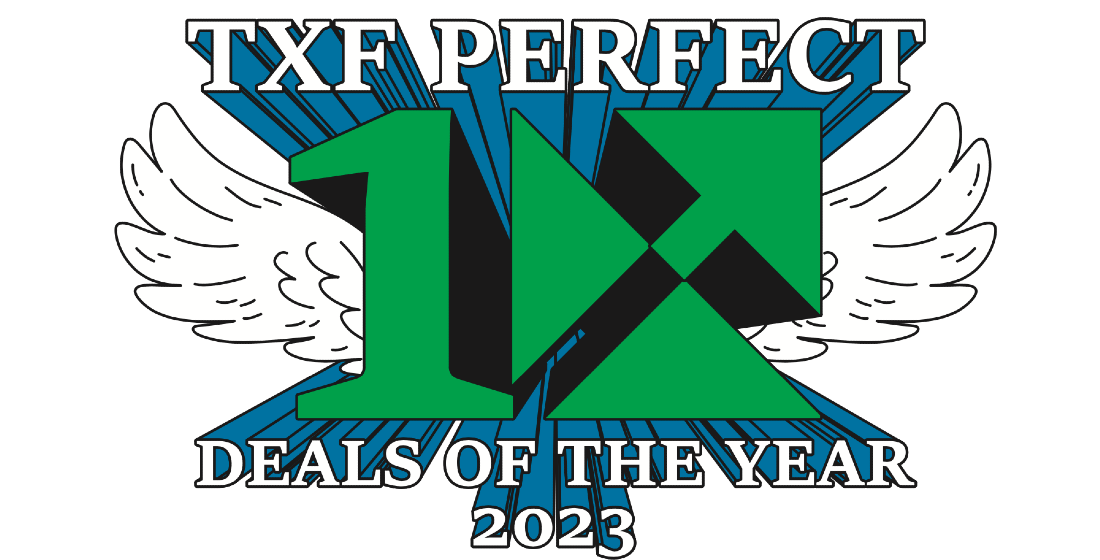An open letter to Donald Trump - export to revitalise the US economy
International competition for contracts and projects in overseas markets is intense. As such, US exporting companies and contractors need the full support of an empowered US Export-Import Bank (US Ex-Im) to prosper on the international stage.

International competition for contracts and projects in overseas markets is intense. As such, US exporting companies and contractors need the full support of an empowered US Export-Import Bank (US Ex-Im) to prosper on the international stage. Competition from countries operating within the OECD consensus is strong, while competition from some operating outside of the consensus often puts US companies at a distinct disadvantage. The US needs US Ex-Im fully armed to challenge this competition head on.
Currently, US Ex-Im is effectively moribund, and US manufacturers and exporters are suffering because of this. As the bank has not been given full reauthorisation by Congress and the Senate, the agency is presently only allowed to authorise support for export deals up to the value of $10 million. In global terms this level of financing is the equivalent of digging a ditch using a spoon.
There is a massive backlog of export deals in the pipeline, representing an estimated $25 billion in export revenue, which have been sitting there through the past 18 months. Many jobs in the US related to those exports are consequently at stake. These export deals are mainly being financed by commercial banks, but it is US Ex-Im guarantees which are needed to make them viable.
Last year, the bank was effectively shut from end June to December due to political intransigence in the US, while its $10 million deal ceiling in place since December 2015 is also hugely limiting. The backlog of deals and projects cannot be cleared until the bank has another board member – and this appointment requires approval from Congress and the Senate. Specifically, the chairman of the Senate Banking Committee, Senator Richard Shelby, has refused to allow confirmation votes for vacant board seats. This is a ridiculous state of affairs, when one politician can effectively hold up billions of potential US export contracts and revenues.
While all this stagnation continues, US manufacturers and exporters are missing out. Consequently, some US manufacturers and contractors are shifting their production to other countries where they can get commercial bank loans (export credits) backed by proper guarantees from other countries’ export credit agencies (ECAs) for their deals and projects. Congress has also recently added to the problem, as only last week the house declined to pass a waiver for US Ex-Im to approve deals larger than $10 million.
Meanwhile, the rest of the world is making hay while the US dwindles in darkness, firstly for not having a viable ECA, and secondly for losing some of its export contracts to other countries. And foreign competitors are laughing because they know their own exporters and contractors can move in to pick up business where US companies have no full financial support from an ECA.
And to be properly effective in competing with the likes of China for example, it needs to have a proper budget and the authority to support US export contracts utilising whatever tools and products work best.
US Ex-Im also needs a situation where it is not having to go every five years through the same reauthorisation process, where it is wrongly being used by some as a political punch-bag. US Ex-Im actually returns money for the US Treasury, while at the same time it is a fountain for generating export revenue and many thousands of jobs across the supply chain throughout the US. If the backlog can be cleared, and then Ex-Im can look at pushing ahead and supporting US-based companies in competing in international markets, including situations where there is unfair competition.
Chinese exporters, for example, receive substantial support – in the way of cheap loans to support exports and projects, from the likes of the Export-Import Bank of China (China Exim), and China Development Corporation (CDC). These funding arrangements, which amount to tens of billions of dollars annually, give Chinese companies a distinct advantage in emerging markets in particular. It has to be said though, that some of these contracts are in countries where many Western companies still feel uncomfortable in doing business.
US manufacturing companies compete extremely well in terms of quality of equipment, machinery, technology and services related to projects. So, US Inc can stand up to the best of competition globally. There will always be guidelines, which are necessary and many countries conform to. However, there is no perfect level playing field, nor will there ever be. However, US Ex-Im can certainly help in providing US exporters with a better footing in this regard. But countries that are now progressive and innovative with their financing options to support their exporters will be the winners.
Much has been written in the mainstream press, particularly in the US, about the type of support which US Ex-Im used to provide. This was largely no different to that provided by many other ECAs globally. And in many cases, those opposed to US Ex-Im have often described this support as ‘corporate subsidies’. This is absolute nonsense, largely from people who have no idea how the financing of cross-border trade for capital equipment and projects work.
Having been focused on international trade and project finance for more than 30 years, I certainly know more on this subject than some of the commentators I have seen raise their voices in the US over the past couple of years. Why am I concerned about the US? Because I want to see all global trade prosper - exports mean jobs, and jobs help overall prosperity and contribute to a healthier economy. Overall, US manufacturing has been seriously damaged by the loss in jobs since US Ex-Im was put in this stagnation position.
ECAs have helped the world through numerous crises, and these agencies continue to be influential and innovative in boosting international trade at a time when commercial banks are being hit by increased regulation stifling them from undertaking business in many markets. De-risking is the name of the game for commercial banks, which leaves ECAS having to pick up a big chunk of support for overseas trade.
Let us look at a very basic hypothetical example. A US manufacturer wins a $30 million contract to export agricultural equipment, services and port facilities to a company in Kenya. As such, it needs to arrange commercial bank financing. But, commercial banks will only come into such deals in emerging markets with the right sort of cover (guarantees) in place. And the private insurance market might also only be willing to take a certain portion of this. Export credit agencies, such as US Ex-Im, are usually able to provide this cover by issuing guarantees to the commercial bank lenders that in the case of default by the borrower, the ECA will repay the loan.
To be serious about ‘making America great again’ across the world stage, it is only right that part of this is done by focusing on increasing US exports and US-backed projects overseas. At a time in the global economic cycle when many countries are keen to protect their own economies, it is all too easy to lose sight of how important it is to remain internationally focused with regard to trade. The US has a major part to play, and an awful lot to gain in this regard. Empower your exporting base by providing the full reauthorisation of US Ex-Im. This can best be done by putting the agency back in the capable hands of those who know very well how such institutions best work on the world stage – and the current chairman of US Ex-Im, Fred Hochberg, is certainly the best I have seen over the past 30 years.
US Ex-Im needs to be authorised to restart its job in supporting US exporting companies with guarantees, direct loans where appropriate, capital market structures and working with private commercial banks and insurance companies to help America become a real force in exporting US capital goods, equipment and related services. With this in place, it will help secure additional export revenues while also supporting and boosting America’s manufacturing, supplier, sub-contractor base and generating many thousands of jobs at US-based companies seeking to drive US exports. This is all without even mentioning the handsome dividends returned to the US Treasury from the fees that US Ex-Im charges.
For the good of America, please make this happen!





